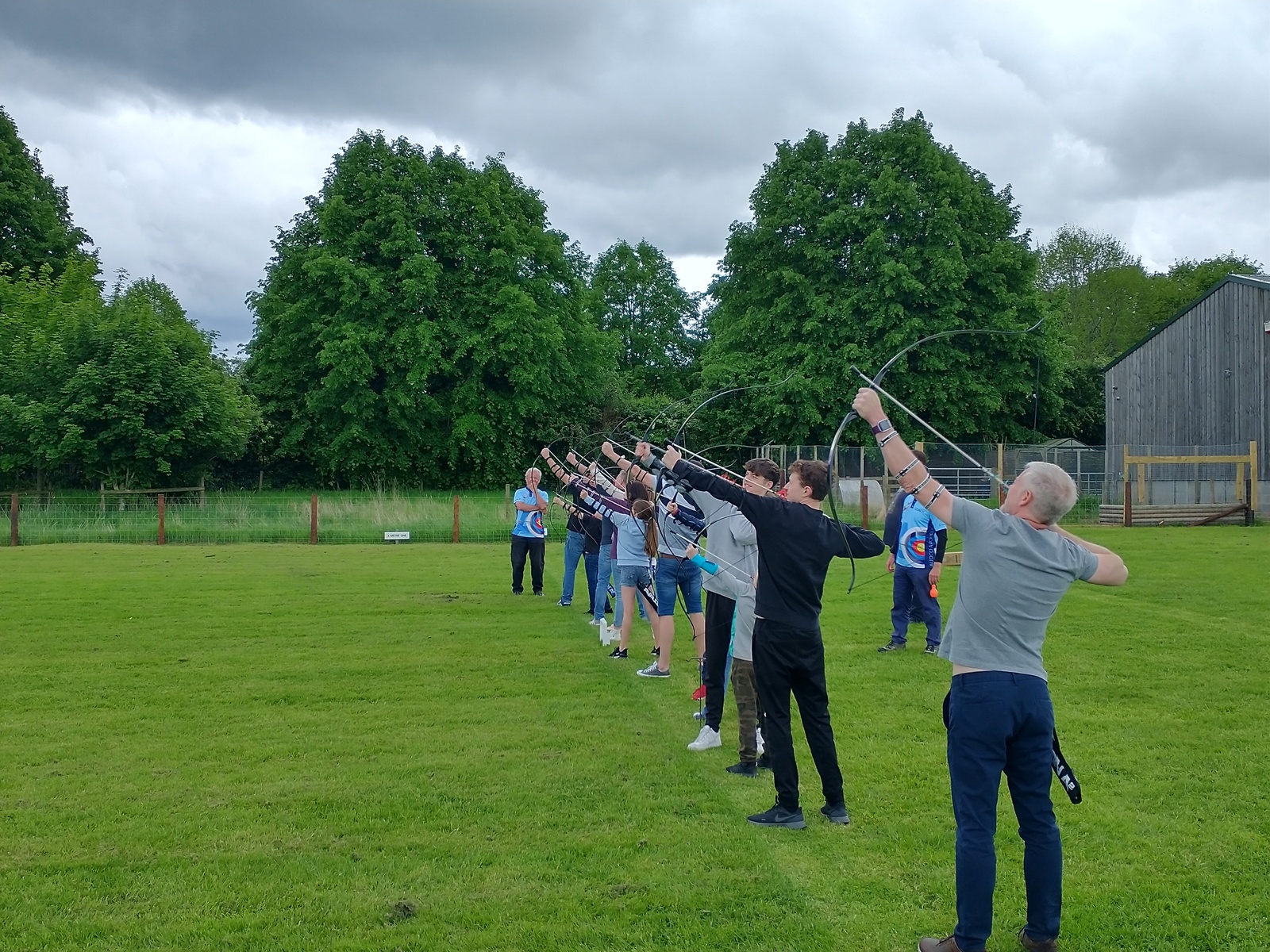The physical, mental and wellbeing benefits of archery. Archery requires focus, strength and determination - Whether you’re a performance athlete or just having a go, archery is great for body and mind. Top archers train daily for many hours at a time, but even for recreational archers, the health benefits of archery are clear. Shooting takes concentration, calming your mind as you focus on the target, and can mean that any worries you have are left aside while at the range.
Top archers train daily for many hours at a time, but even for recreational archers, the health benefits of archery are clear. Shooting takes concentration, calming your mind as you focus on that target, and can mean that any worries you have are left aside while at the range.
Archery is a highly accessible sport, one of the few that almost everyone, regardless of gender, age or ability, can enter, enjoy and potentially excel at. Archery was used as a rehabilitation activity in Stoke Mandeville Hospital in the 1940s, providing physical rehabilitation benefits to injured servicemen, while giving them back a sense of hope and enjoyment of life.
“Getting back to the range has improved my mental health. It's reinvigorating to participate in the sport and be outside, along with being part of the archery community again where I can focus my thoughts and energy positively.” - Colin Simpson, Bowmen of Warfield.
Research conducted by Women in Sport found that 55% of girls agreed that keeping fit and doing physical activity made them happier and 54% said that it made them less stressed. Initiatives like Project Rimaya are throwing open the doors to communities and welcoming people who may be less likely to access the wellbeing benefits of sports.
Archery has many health and wellbeing benefits, here are just a few of our favourites.
Drawing a bow takes energy, burning calories and toning and strengthening muscles in your arms and back. Walking to the shooting line and then to the target to collect arrows also burns energy and means you’ll get your steps in faster than you think.
When exercise is enjoyable we’re more likely to do it ,and what could be more enjoyable than spending time with your club, shooting arrows and working on your aim?
At tournaments, archers can walk up to five miles each day, burning between 100 and 150 active calories every 30 minutes!
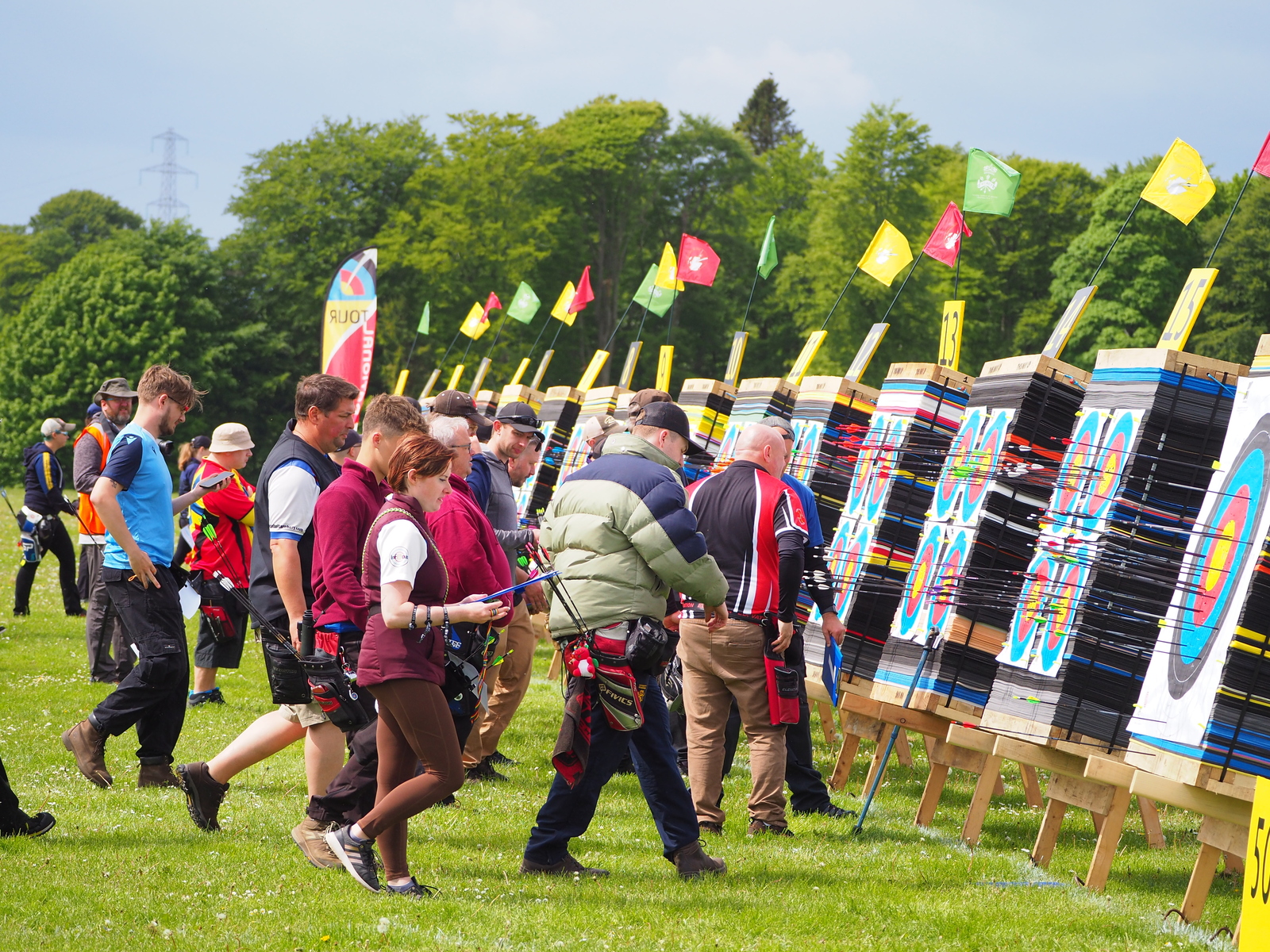
Drawing your bow requires short bursts of energy from muscles in your chest, hands, arm and upper back muscles, and puts tension on the rotator cuffs, which support your shoulders. As you draw you will hold the tension for a couple of seconds, similar to weightlifting. Repeating these movements as you shoot builds and strengthens these areas, defining the muscles and developing them.
It’s not just your upper body that gets a workout on the range, though. The stability and control that an archer has is drawn from the lower body and core. So much so, that many elite archers will work out their lower body in the gym (as well as upper body) and go for runs to improve their lower body endurance. But running not only gives you leg strength, it improves your cardiovascular system (heart and lungs) which in turn improves your archery performance.
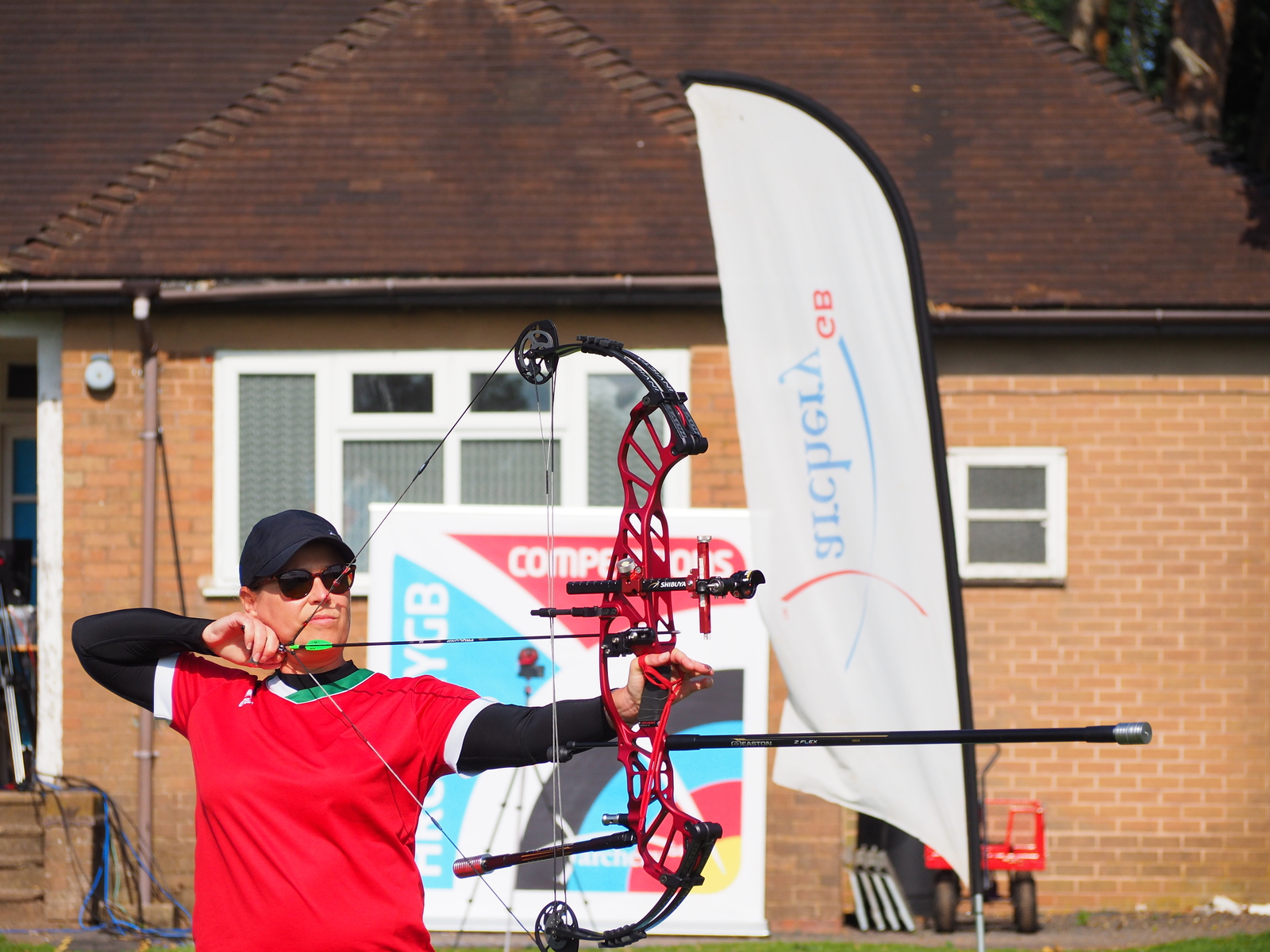
Whether stepping onto the Olympic range or hanging out at your local club, concentration and focus is essential for archers. Archers must learn to remove distractions from their mind, including gusts of wind, background noise and any worries they’re carrying with them.
This focus and ability to concentrate on your technique and the target for those few minutes, can carry through into the rest of your life, allowing you to apply great concentration to tasks, and to put aside anxieties.
Even the most serious of performance archers enjoy their sport and have fun with it - it’s unlikely they’d get far if they didn't. While improving your scores, progressing and winning competitions is important if those are your goals, they don't have to be. It’s perfectly acceptable to just shoot for the love of it, you don’t even have to record your scores if you don’t want to.
Engaging in activities which you find fun and entertaining helps lighten the load and sets you up for the rest of the week.
“Don’t expect too much, just enjoy it! Enjoying yourself is the main thing when it comes to archery. Enjoying yourself, taking your time and falling in love with the sport is the most important thing to do.” - Megan Tinker, Dearne Valley Archery Club.
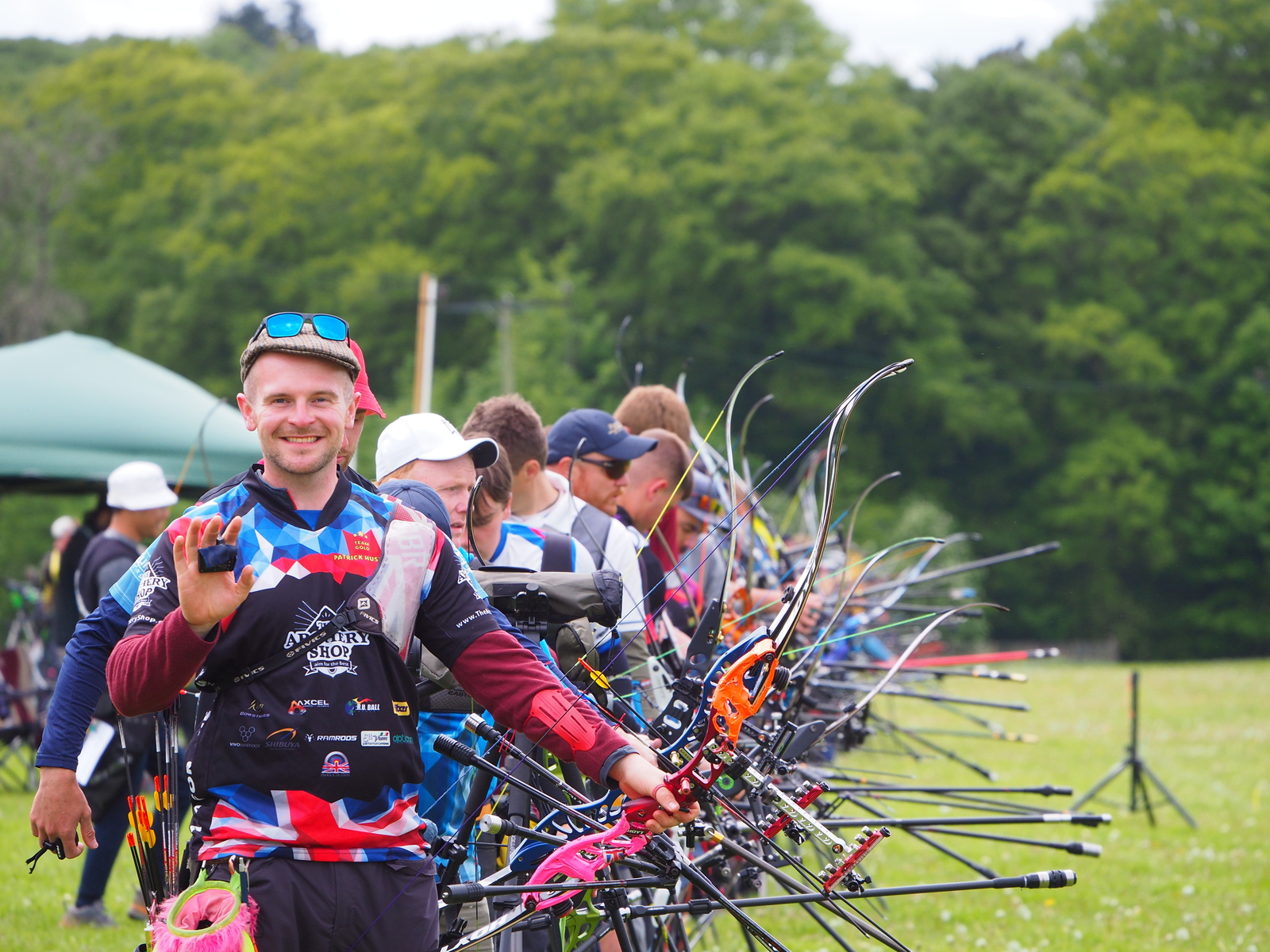
Archery clubs can be a great way to meet new people and socialise, whatever your age. Whether you’ve just moved to a new area and want to get out and find friends, or you’re simply wanting to expand your horizons, archery clubs are full of supportive and friendly people who will cheer you on, even as they compete against you!
“Getting out and meeting friends feels great. I love the friendly banter and camaraderie. Archery is a friendly, fun sport and being at the range brings out the fun side of training.” - Lee Miller, Waterside Archers.
Having a common interest means you always have something to talk about, and clubs often hold social events outside of competitions and weekly training sessions where you can build on your budding friendships.
Whatever your archery goals are, whether you see yourself on the Olympic podium one day, or you’re just working on hitting the target for now, seeing yourself progress is a surefire way to build your confidence.
Keeping records of your score is an easily measurable way to see how far you’ve come, proving that hard work and dedication really do lead to great results - a lesson in resilience for those days when you get more misses than golds!
“I’m a visually impaired archer, but I still shoot in my age category with everyone else. I use a foot marker mat and my mum spots my arrows. Doing archery whilst visually impaired has helped show me that I can still achieve. It’s not something that I have to view as a negative” - Euan O’Connor, age 13, Pennine Archers
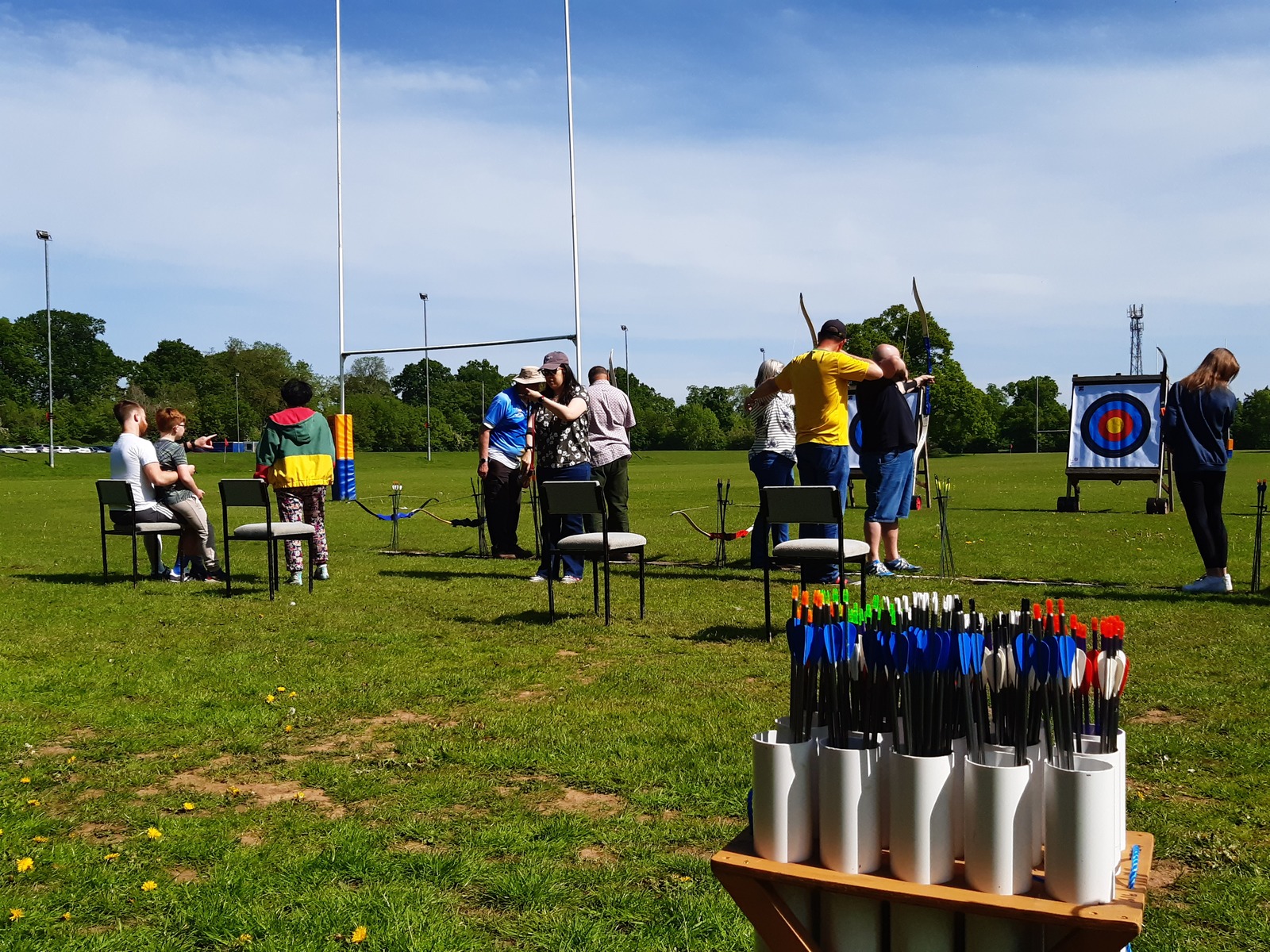
Archery, with its structure and routine, as well as the individual nature of shooting, can be well suited to autistic children and adults, as well as anyone who might struggle with team sports. Archery requires focus and repetition, something that people on the autism spectrum may excel at.
Archery is also known for its sportsmanship, with both teammates and opponents being willing to show understanding and empathy when an archer struggles. This can make all the difference for an athlete with autism who is finding the pressure, the noise of the audience or the crowds at an event overwhelming. Archery clubs also tend to be welcoming, low pressure environments where an autistic person can settle in and feel at home.
In 2021, Fin Clark, then 15, of Wyke & York Archers Society, attended two rounds of selection shoots with a chance to represent GBR at either the World Junior Championships or European Youth Cup (EYC). In an incredibly competitive field, Fin’s consistent scoring secured him a place representing GB at the EYC in Bucharest. Fin is autistic and finds the structure and routine of archery to be agreeable with his additional needs.
In an incredible demonstration of the sportsmanship that exists within archery, the match judge and Italian coach requested that spectators refrain from clapping or cheering throughout Fin’s match, due to his sensitivity to noise - a gesture which allowed Fin to excel in the sport he loves.
Emma Broxholme, an archery county coach, has given some advice to coaches to help them make their coaching techniques autism friendly and inclusive.
This one might seem counterintuitive - especially if you’re competing - but archery requires you to stay calm under pressure. Archers develop this ability by working on managing their breathing, concentration and performance nerves. These techniques can be carried through to every other area of your life, from pressing work deadlines, to exam pressures or stressful events.
A study by H.A. Aysan (2016), showed that archery has a positive effect on decreasing the symptoms of stress. It is almost a form of meditation, letting go of stress and letting the shooting just happen.
Finding activities that everyone in the family enjoys can be tricky, especially when those teenage years arrive. Archery is a fun and accessible way to spend time together as a family, cheering each other on, celebrating successes and building each other up when things don’t go your way.
Having shared interests strengthens sibling, and parent/child bonds, and gives you all something to look forward to together.
Why not come along to your local club and find out? You’ll find friendly, supportive people who just want to help you shoot the very best you can. Sign up to their next beginner’s course, or see if they’re holding a “Have a Go” event so you can try archery for yourself.
